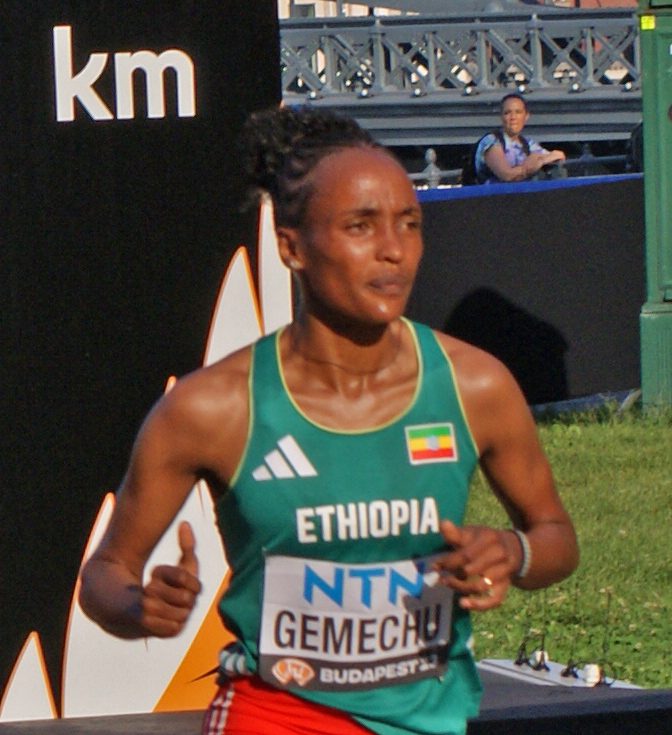On Thursday, the Athletics Integrity Unit (AIU) announced a four-year ban for Ethiopian marathoner Tsehay Gemechu after her Athlete Biological Passport (ABP) data revealed three unusual spikes in hemoglobin and reticulocyte (red blood cell) levels.
The AIU has banned Tsehay Gemechu (Ethiopia) for 4 years from 30 November 2023 for Use of a Prohibited Substance/Method (ABP case). DQ results from 22 March 2020 until 30 November 2023
Details here: https://t.co/Y7ofrG9LZo pic.twitter.com/saIuKpvnwg— Athletics Integrity Unit (@aiu_athletics) October 31, 2024
Gemechu, one of Ethiopia’s top female marathoners, represented her country at the 2023 World Athletics Championships in Budapest and the Tokyo 2020 Olympics. Her personal best of 2:16:56 at the 2023 Tokyo Marathon ranks her 10th among Ethiopian women (all time).
Beyond her marathon achievements, Gemechu holds a 5,000m personal best of 14:29 and finished fourth in the event at the 2019 World Championships in Doha.
The 25-year-old was originally set to compete in the 2023 Valencia Marathon but withdrew after her data raised suspicions. The ABP tracks biological markers over time to detect doping indirectly, enabling the AIU to monitor individual profiles and flag irregular changes that may indicate performance-enhancing drug use.

The AIU investigation revealed abnormal fluctuations in Gemechu’s hemoglobin and reticulocyte levels on three separate occasions between March 22, 2020, and March 26, 2023, just weeks after the Tokyo Marathon. Data anomalies can often indicate if an athlete is doping.
As a result, all of Gemechu’s performances between March 22, 2020, and Nov. 30, 2023, will be annulled, and she must forfeit any titles, awards, medals, points, prize money and appearance fees earned during that period. Her four-year ban extends through Nov. 30, 2027.

